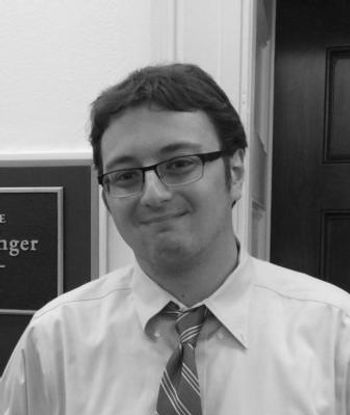REPORT: Campus anti-Semitism EXPLODES in 2016
A new report claims that anti-Semitic activity skyrocketed by 40 percent in 2016 at the college and university campuses with the largest number of Jewish students.
The number of schools at which such incidents took place actually declined slightly, but this was more than offset by dramatic increases in anti-Semitism at a few large schools.
A new report claims that anti-Semitic activity skyrocketed by 40 percent in 2016 at the college and university campuses with the largest number of Jewish students.
“Antisemitism: At the Epicenter of Campus Intolerance” is the second annual report on the subject released by the AMCHA Initiative, allowing for direct year-over-year comparisons revealing that the bulk of the increase in anti-Semitic activity was concentrated among several especially-problematic schools.
The report divides “acts of anti-Jewish hostility” into two categories: “classic anti-Semitism” and “anti-Zionism.” While the number of anti-Zionist acts stayed relatively unchanged, AMCHA claims that the amount of “anti-Jewish genocidal expression” more than doubled between 2015 and 2016.
[RELATED: UCI Chancellor downplays school’s history of anti-Semitic incidents]
“On college campuses, Jewish students have often been subjected to severely intolerant behavior: actions that target them for harm and deprive them of their freedom of expression, as well as hateful speech and imagery that threaten violence against them or portray them as worthy of harm,” AMCHA director Tammi Rossman-Benjamin said in a press release. “In the current climate of increasing polarization and acts of extreme intolerance, we believe that Jewish students, and all students, will be best served when university administrators treat anti-Semitism and other acts of bigotry as forms of intolerant behavior that must be addressed with a single behavioral standard applied equitably to all forms of intolerance.”
Rossman-Benjamin added that the 2016 figures do not appear to represent an isolated trend, noting that “in the first two and a half months in 2017 alone, there were more than 30 incidents involving anti-Jewish genocidal expression at the schools in our study, with several of these incidents affecting not only Jewish students but other members of the campus community who have been targeted for their opinion or identity.”
Overall, AMCHA identified 432 unique instances of anti-Semitism at the 72 schools with the largest number of Jewish students, nearly half again as many incidents as took place on the same campuses in 2015.
[RELATED: Jewish student forced into hiding by mob of Muslim protesters]
Notably, there was actually a slight decrease in the number of schools from which the reports were drawn, though this was more than offset by the dramatic increase in anti-Semitism seen on just a few campuses.
The problem was particularly prevalent at Columbia University, which had the highest incidence of overall anti-Semitic activity, anti-Semitic expression, and BDS activity, though it failed to crack the top-10 in terms of targeting Jewish students for harm.
Vassar College, meanwhile, took second-place in all four categories, while the University of Chicago, the University of Wisconsin-Madison, and the University of California-Berkeley all made frequent appearances on the lists, as well.
“The most interesting change and difference from 2015 is the amount of genocidal expression,” Rossman-Benjamin told Campus Reform, citing Holocaust references like “gas the Jews” and “kill the kikes” as examples of genocidal expression.
She also expressed concern about the growth of the BDS movement, asserting that "when there’s more BDS, there’s more activity that targets Jews for harm,” a claim she says is substantiated by AMCHA data showing a correlation between the number of faculty supporting boycotts against Israel and the number of acts of hostility against Jewish students.
[RELATED: REPORT: BDS among ‘greatest threats to academic freedom’ today]
She did clarify, however, that while AMCHA believes that universities must take steps to counter the growth of anti-Semitism, this does not mean infringing on the First Amendment rights of students.
Because the “highest value at the university is freedom of expression,” for instance, the AMCHA report suggests that administrators should ask critical questions of prospective student groups that have a history of violating the free speech rights of others, requiring their leaders to “adequately explain how their activities will avoid impinging on the freedom of expression of other members of the community.”
The report also calls for “prompt and appropriate disciplinary measures” to be taken whenever “any individual or group engages in behavior that suppresses the freedom of expression or civil rights of others,” and for universities to establish and promulgate clear policies on free speech.
Follow the author of this article on Twitter: @JacksonRichman

